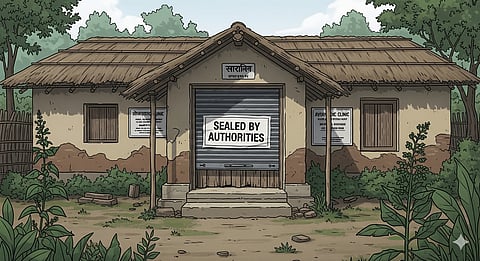In India, Ayurvedic surgeons hold the BAMS (Bachelor of Ayurvedic Medicine and Surgery) degree, which includes limited surgical training. Some states permit BAMS practitioners in rural settings to carry out modern medical interventions during emergencies, including surgeries. And according to AYUSH Ministry, under Indian Medicine Central Council (Minimum Standards Requirement for Ayurveda, Siddha and Unani Colleges and Attached Hospitals) Regulations notified in 2012 and 2013, conducting deliveries by Ayurvedic, homeopathic doctors posted in government facilities are allowed to do deliveries, but not cesarians.[2]
However, this practice remains highly contested. The Medical Council of India (now superseded by the National Medical Commission) has taken a restrictive position, asserting that Ayurvedic doctors cannot perform surgeries like C-sections in allopathic hospitals or settings without proper infrastructure.
In educational institutions, Ayurvedic colleges have performed some surgical procedures such as C-sections only under supervision from allopathic specialists, including anesthetists and gynecologists, to ensure safety and regulatory compliance.
Additionally, post graduate courses have been introduced recently in Ayurveda which introduces post graduate degree in surgical branch in Ayurveda viz-Shalya (Surgery), Shalakya (Eye, E.N.T. & Dentistry) & Strirog Prasuti Tantra (Gynecology and Obstetrics). P.G. Degree courses [M.S.(Ayurveda)] of 3 Years duration after B.A.M.S., which will enable the ayurvedic doctors to do surgeries soon.[3]
The changing policies are causing confusion among the medical fraternity over the existing regulations.


